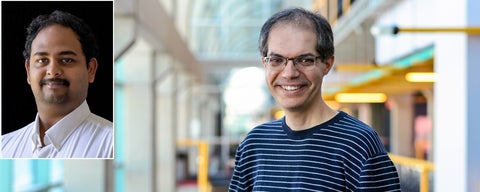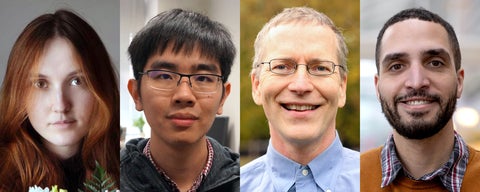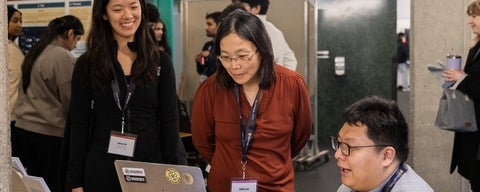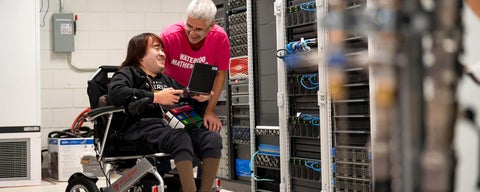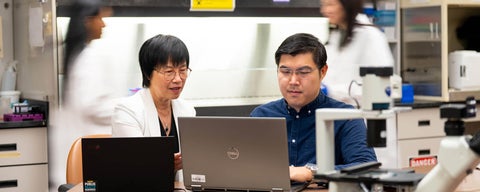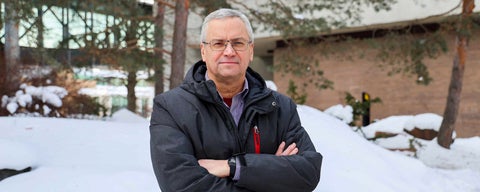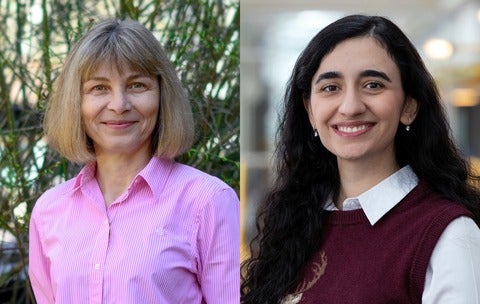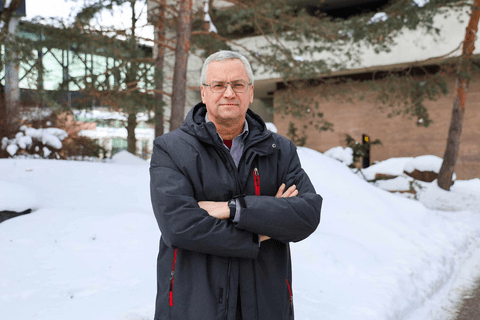David R. Cheriton School of Computer Science
The Cheriton School of Computer Science is named for David R. Cheriton, who earned his PhD in Computer Science at the University of Waterloo in 1978. In 2005, Professor Cheriton made a transformational gift to the school that supports named chairs, faculty fellowships, and graduate scholarships.
News
Does DNA carry an imprint of the environment?
Evolutionary biologists have long known that DNA, the molecule that carries the genetic instructions for the development, functioning, growth and reproduction of all organisms, contains a record of ancestry.
But could genomes also bear an imprint of the environments in which organisms evolved? According to a recent bioinformatics study, the answer, at least for some life forms and for some extreme environments, is an unexpected yes.
The hidden dangers of black carbon in snow
As Canada experiences record snowfall, new research from the Cheriton School of Computer Science suggests that tiny amounts of industrial pollution trapped in snow can change how sunlight reaches the ground below and significantly alter fragile environments.
The culprit is black carbon, a sooty form of pollution produced when fossil fuels burn incompletely. It can come from vehicle exhaust, industrial emissions and other combustion sources. While black carbon is already known to contribute to warming, the Waterloo research highlights another, less visible effect: how it alters the “light environment” under snow in ways that affect plant growth.
Circle signs an agreement to acquire Interop Labs, blockchain interoperability company with deep roots at the Cheriton School of Computer Science
Circle has signed an agreement to acquire the Interop Labs team along with its proprietary intellectual property, the company behind the development of the Axelar Network
Events
Seminar • Computer Graphics • From Representation to Workflow: Computational Tools for Human Visual Creativity
Please note: This seminar will take place in DC 1304.
Chenxi Liu, Postdoctoral Researcher
Dynamic Graphics Project, University of Toronto
Seminar • Systems and Networking • Runtime Context-Conditioned Control in Networked Systems
Please note: This seminar will take place in DC 1304.
Anwar Walid, PhD
Seminar • Algorithms and Complexity • Derandomizing Matrix Concentration Inequalities from Free Probability
Please note: This seminar will take place in DC 1304 and online.
Robert Wang, PhD candidate
David R. Cheriton School of Computer Science
